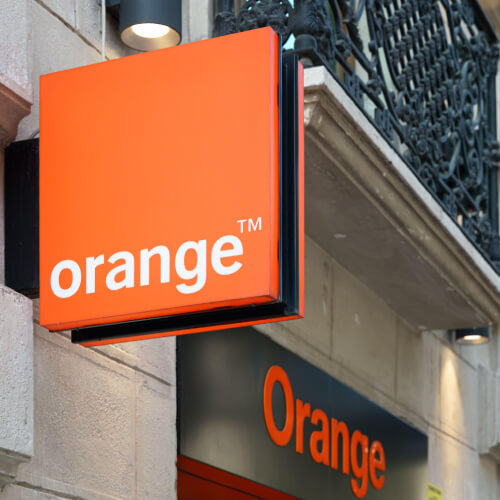Also in today's EMEA regional roundup: OneWeb brings connectivity to superyachts; the digital divide and what to do about it; Iran blocks the Internet.

Also in today's EMEA regional roundup: OneWeb brings connectivity to superyachts; the digital divide and what to do about it; Iran blocks the Internet.
Orange is teaming up with Netskope, a US company specializing in secure access service edge (SASE) software, to beef up the Orange Telco Cloud Platform. The partnership will draw on Orange Cyberdefense's security expertise and Netskope's global security private cloud footprint, helping, it is hoped, enterprise customers avoid data loss and other, related catastrophes. Figure 1:
 (Source: l_martinez/Alamy Stock Photo)
(Source: l_martinez/Alamy Stock Photo)Good news for oligarchs: OneWeb, the satellite broadband company co-owned by the UK government and India's Bharti Global, has got on board with antennas firm Kymeta to introduce a low-Earth orbit (LEO) broadband offering for superyachts. OneWeb tested its LEO connectivity with two Kymeta antenna at sea off the coast of Monaco at the end of August, demonstrating connectivity speeds of up to 200 Mbit/s download and 20 Mbit/s upload to enable voice calls, streaming and video gaming for bored sailors. End-to-end encryption is also promised by OneWeb – ideal for sensitive messages relating to money-laundering or Vladimir Putin.
At the other end of the social scale, Citizens Advice, the influential charity, is warning that more than 13 million UK mobile and broadband customers may see bills rise by £100 (US$110) next year due to pricing formulas tied to the country's soaring rate of inflation. On the broadband side, it calculates that if the rate of inflation hits 12.6% in January (as predicted by the Bank of England) customers of BT, EE, John Lewis, Plusnet, Talktalk and Vodafone (who between them hold 45% of the broadband market) could face mid-contract price hikes of 16.3-16.5%, a figure made up of the Consumer Price Index plus 3.7-3.9%. As for mobile, Citizens Advice expects customers of O2 to suffer the most, with a likely price rise of 18.9%, which is the Retail Price Index plus 3.9%. The charity says mobile and broadband access must remain "affordable," and is calling on providers to axe these price rises.
In a not unrelated move, vulnerable residents of a social housing scheme in Greater Manchester, in the northwest of England, will receive free Vodafone SIM cards to help them stay connected. The landlords, Southway Housing Trust, will identify residents in need of SIMs and distribute them, as well as supporting residents with any digital skills training that they may need. Other companies are providing fixed-line broadband to residents as part of the pilot.
Telecom Italia (TIM) has signed up to the European Green Digital Coalition, a project launched in 2021 by heavy-hitters in the ICT sector and supported by the European Commission. The coalition's stated aim is to harness the "potential of digital solutions and enable the green transformation." The list of other big telecom names in the coalition includes Deutsche Telekom, Ericsson and Liberty Global.
The authorities in Iran have blocked access to the Internet in parts of Tehran and Kurdistan, the Guardian reports, as protests sparked by the death of 22-year-old Mahsa Amini at the hands of the so-called "morality police" continue to gather momentum.
County Broadband, a UK altnet based in rural Essex, has launched a recruitment drive following a £100 million ($110 million) investment from Aviva Investors earlier this year. The company says it is offering "over 30" jobs across the East of England region, where it plans to reach half a million premises with full fiber by 2027.
— Paul Rainford, Assistant Editor, Europe, Light Reading
Read more about:
EuropeAbout the Author(s)
You May Also Like











